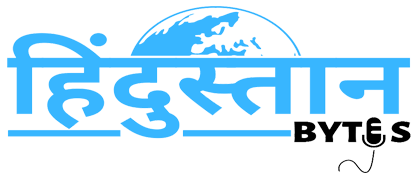Leveraging Derivatives Markets for Private Investment Gains

The derivatives market is a financial market in which futures contracts and options, among other financial instruments, are traded according to the values of their underlying assets.
Since its introduction in 2000, the Derivatives Market in India has been gaining increasing relevance comparable to its overseas counterpart. Like stocks, Derivatives are also traded on stock exchanges, being a security, whose value is derived from an underlying asset.
The Derivatives Market comprises of various participants, each playing an integral role in the functioning of the market.
Who participates in the Derivatives market?
The participants can be divided into three parts
- Hedgers
- Speculators
- Arbitrageurs
Who are Hedgers?
These traders seek to limit their exposure to the risks and uncertainties associated with price movements by engaging in hedging strategies. By taking an exact opposite trade and transferring the risk to those who are willing to accept it, they aim to mitigate their risk of uncertainty.
Who are Speculators?
Speculation is a common practice among participants of financial markets, entailing a certain degree of risk. It involves the purchase of a financial instrument or asset with the expectation that its value will increase over time. Speculation can be a rewarding endeavour, yet it is important to proceed with caution.
Who are Arbitrageurs?
An arbitrageur is a type of investor who attempts to profit from market inefficiencies. These inefficiencies can relate to any aspect of the markets, whether it is price, dividends, or regulation. The most common form of arbitrage is price.
Types of derivative contracts
- Forward Contracts:
Standardized forward contracts are agreements between two parties to trade a particular contract at a specified time and price. These contracts are highly standardized and traded through exchanges, providing a secure platform for investors and traders to enter into these agreements. The standardized forward contracts are highly regulated and provide a safe, secure way to enter into a contract without the risk of counterparty default. They also provide a number of advantages over other types of derivatives, such as options and futures contracts, including the ability to customize the agreement to fit the needs of the two parties. Furthermore, the exchange provides an added layer of liquidity and transparency, ensuring that the contracts are properly executed and prices remain competitive.
These contracts are not traded on an exchange but privately traded over the counter.
- Futures Contracts:
Standardized future contracts are agreements between two parties to trade a particular contract at a pre-determined time and price. Such contracts are traded on the exchange, with market participants typically using them to hedge against risks associated with price fluctuations or to speculate on the price movements of a commodity, currency, or other financial instrument.
- Options:
This agreement between a buyer and a seller grants the buyer the right, but not the obligation, to purchase or sell a specified asset at a predetermined price at some point in the future. This agreement is often referred to as a "call option," and it can be incredibly useful for buyers and sellers alike. For sellers, it provides the opportunity to lock in a sale price in advance, and for buyers, it can be a great way to hedge against potential price fluctuations in the future. In addition, the terms of the agreement can be customized to fit the specific needs of both parties, making it an attractive agreement for all involved.
Why the Derivatives Markets are risky?
- High-Risk: The derivatives market has received considerable criticism due to the heightened risk associated with trading in financial instruments.
- Complex:
Due to the intricate and volatile nature of the derivatives market, it can be a difficult concept to comprehend. As a result, the general public often chooses to enlist the services of brokers and trading agents to aid them in their financial investments, as opposed to attempting to navigate the derivatives market on their own.
- Volatile Markets:
Due to its high volatility, the derivatives market is often avoided by investors and traders. Many financial instruments are delicate to minor fluctuations, for example, variations in the expiration period and interest rates, leading to a volatile marketplace.
How to Trade in Derivative Markets
In order to engage in derivative trading, it is important to have a comprehensive understanding of the derivative markets. A margin amount must be deposited prior to beginning trading. Additionally, an active trading account that authorizes derivative trading must be established. When making stock selection decisions, one must take into consideration the current market conditions.
Trading derivatives can be a complex and intimidating subject, but with the right training, it can be a highly lucrative trading strategy. Whether you are a beginner looking to get a comprehensive introduction to the derivatives market, or an experienced trader looking to hone their skills, there are a variety of courses available to suit your needs. These courses often focus on teaching traders how to identify and capitalize on trends in the markets, as well as how to manage risk and optimize their trading strategy. With the right training, traders can develop the skills to maximize their profits and increase their overall trading success.
The comprehensive course series will provide you with the skills and knowledge needed to effectively understand and trade derivatives. Derivatives are complex trading/investment instruments with the potential to be used as powerful hedging tools
Author – Mahesh Kaamath (Founder MAK Trading School)

















